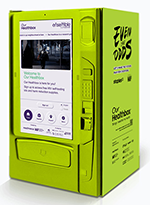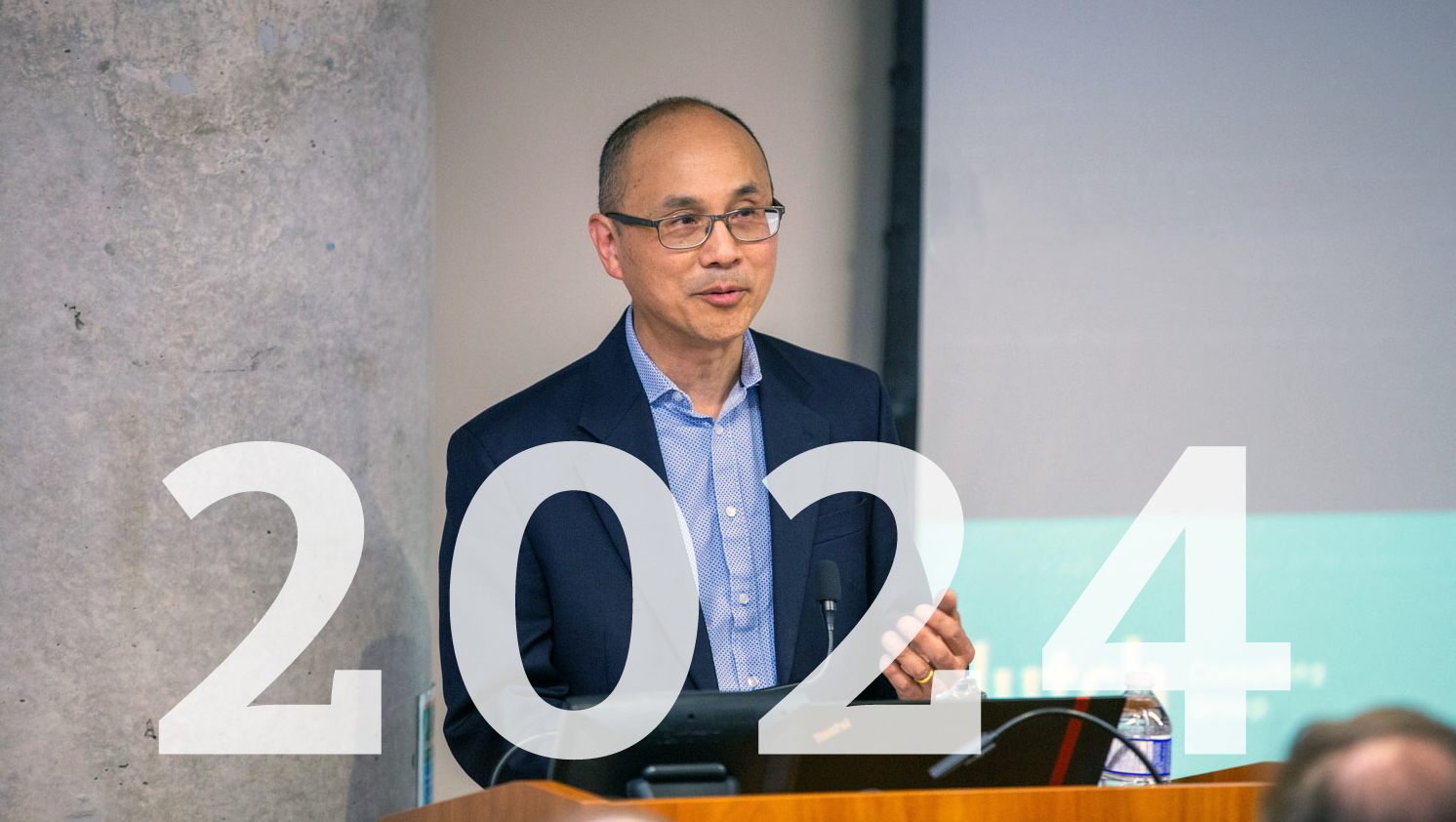As 2024 comes to a close, let’s celebrate the wins. MAP is an academic research centre with the primary strategic goal of driving system and policy change for health equity. This year we saw sound, scientific evidence, and in no small part MAP research, embedded in several policy gains that promise to yield real, concrete benefits across our lifetimes.
For example, national pharmacare has been a long journey in Canada, with MAP in many ways drawing the roadmap (more on that below). I’m overjoyed to see this crucial building block of health equity begin to come to life.
In 2024, the federal government announced a National School Food Policy and $1B commitment to addressing food insecurity for 400,000 students across Canada. MAP was part of the first national roundtable to inform this work.
Thanks in part to MAP’s national OurCare initiative (see below), many provinces also strengthened their commitments to improving primary care access. Ontario and PEI in particular set goals in 2024 for 100% of their population having access to primary care.
In 2024, we also saw some concerning steps backwards for health equity in Canada, particularly, the loss – rather than the improvement – of research-based, lifesaving harm reduction programs and initiatives in Ontario and BC. These are important reminders that gains can be abruptly lost. There is still a great deal of work to do.
Let’s be energized by the wins. As you read through the impact stories below, I hope you feel proud of what has been made possible with your support. Remember that real change is possible, and it takes time. As always, implementation is everything. We will continue to work with our policy partners to help set these recent wins up for long-term success in the months and years ahead.
Together, we can create a healthier, more equitable future – a future that includes everyone.
Sincerely,
Dr. Stephen Hwang
Director, MAP Centre for Urban Health Solutions
Canada Research Chair in Homelessness, Housing and Health
2024 Research Highlights

A giant leap for universal pharmacare: In spring 2024, the Liberals and NDP reached a landmark and long-anticipated agreement on pharmacare, moving forward a bill that was strongly influenced by MAP research. The bill became law on Oct. 10, allowing Canada’s federal government to begin working with provinces and territories to implement a “first phase” of national universal pharmacare, providing free access to diabetes medication and contraceptives. For MAP Scientist Dr. Nav Persaud, this historic year of progress is the culmination of many years of research, partnerships and advocacy – and there is more work ahead. In November, the federal government named Dr. Persaud the chair of a committee to advise the government on the next steps of the program, including recommendations for expanding to a universal, single-payer pharmacare program. That report will be submitted to parliament in late 2025.

A recipe for more effective, more accessible primary care in Canada: MAP launches the OurCare Standard: In 2023, MAP led the largest-ever public consultation on primary health care, collecting input and ideas from close to 10,000 people across Canada. In 2024, we distilled what we heard into the groundbreaking OurCare Standard: six simple statements that describe what every patient in Canada should be able to expect from primary care. The Standard represents a concrete and achievable vision and a new benchmark for assessing the quality of primary care in Canada. It’s already empowering policy-makers and the public to compare different models of primary care and take steps to improve them. For example, the Connected Care for Canadians Act directly addresses the fourth OurCare Standard.

MAP and Staples Canada launch national awareness campaign: To mark the fourth year of our Even The Odds partnership with Staples Canada, Staples and MAP launched a national mass media campaign called ‘Close the Gap’ to highlight the real health challenges faced by disadvantaged communities across the country. The campaign ran on television, digital, outdoor signage and in Staples stores, and in 2024 garnered more than 100M impressions. Since the launch of Even the Odds in 2021, Staples has raised more than $7M for MAP research.

MAP x APPLE Schools improves health for thousands more kids in 2024: APPLE Schools is an internationally recognized best practice that has been proven to help kids move more, eat better and feel happier – erasing many of the long-term health effects of childhood poverty. MAP’s implementation and evaluation of the award-winning program continues in Ontario and Alberta, and reached 4,500 kids in disadvantaged neighbourhoods in 2024. Watch the program’s cute year-end video highlighting just some of the ways that APPLE Schools promote elementary students’ health.

Divided city: MAP and The Local produce first-ever map of life expectancy across Toronto: Through a unique collaboration with The Local magazine, MAP showed that life expectancy varies by almost 12 years across Toronto neighbourhoods, with residents of the wealthiest neighbourhoods most likely to live the longest lives. The results are captured in interactive maps that reveal stark disparities among neighbourhoods separated by just a few TTC stops, filling a critical gap in our understanding of urban inequality in Canada. Since publication, the City of Toronto has initiated discussions on how we can make these data a regular part of how the city monitors progress on health equity.

Science to drive solutions for a lethal public health crisis: MAP leads the country in research on the opioid crisis. In 2024, we helped Canada better understand the barriers to addiction treatment in Canada and some of the populations at highest risk. As controversy around supervised consumption dominated headlines, the Lancet published our first-of its-kind study to track how supervised consumption sites reduce overdose rates at a population level. MAP was part of a Unity Health Toronto review that concluded supervised consumption should continue but with improved community safety supports. When Ontario announced supervised consumption closures, we moved quickly to quantify the expected impact on the lives and health of people who use drugs, and spoke out to share evidence on the crucial role that supervised consumption plays in an effective public health system.

MAP leads first study of its kind on police funding, featured in New York Times: Policing is the single biggest expense in most Canadian municipalities, but is spending more on policing an effective strategy for reducing crime? A study led by MAP’s Upstream Lab asked this question and found no consistent relation between police funding and crime levels across 20 Canadian municipalities, including Vancouver and Toronto. The findings – more police spending does not mean safer cities – were covered in Canadian national media as well as The New York Times.

MAP leads first-ever Mpox vaccine trial, published in BMJ: Published in September in one of the world’s leading medical journals, MAP’s landmark study was the first-ever emulation of a target trial to evaluate the real-world effectiveness of a Mpox vaccine during an outbreak. Just as WHO declared Mpox a global health emergency for the second time in two years, the study demonstrated the power of today’s vaccine: a single dose can prevent infection.

MAP homelessness research makes headlines: Several MAP studies on homelessness and health made national headlines this summer, raising awareness and guiding urgently-needed policy and practice change. In August, MAP proved that homelessness shortens life by almost two decades – and the disparity in mortality between Canada’s homeless and housed populations is getting worse. In July, the front page of The Globe and Mail featured a MAP study on the value of mandating hospitals to record homelessness among patients; it improves health outcomes through tailored patient care. In June, MAP and the Ontario Drug Policy Research Network released a report that showed opioid overdose deaths in Ontario’s shelter system more than tripled during the pandemic. The report pointed to crucial missed opportunities for intervention: nearly half of those who died had an encounter with the health-care system in the week before death, and 90 per cent had sought help for a mental-health condition.

Innovation and cross-sector collaboration to prevent homelessness, address violence: After years of intense preparation and planning, MAP and Mission Services of Hamilton launched Safe at Home Hamilton in May 2024 – a groundbreaking program to better serve women-identifying and gender-diverse people who are experiencing violence at home. The Safe at Home model requires the perpetrator to leave the family home, giving survivors of violence and their children the option to safely remain in place and recover with supports from integrated health, social, police, and legal services.

Smart vending machines continue rollout across Canada, impact grows: MAP’s Our Healthbox program is now active in 11 communities across Canada and has reached more than 7,000 people, delivering almost 1,000 free HIV self-test kits, more than 1,500 Naloxone kits and 23,000 sexual health items and other supplies to reduce harm. One of our 2024 launches was in Tobique First Nation, New Brunswick – learn more in this great video by Healthbox funder and partner, Staples Canada.

MAP distributes monthly food vouchers to 400 low-income Ontarians: Healthy Food Prescription is a research trial to address food insecurity and chronic disease inequities through a novel and promising approach: grocery store vouchers prescribed by physicians to low-income patients with diabetes. Through a randomized controlled trial, MAP is supporting the health of 400 diabetes patients, and tracking how well the vouchers work to reduce participants’ healthcare use as well as overall risk of diabetes complications. Our goal is to guide governments in the best ways to shift investments upstream and to create better health outcomes for people with low incomes. This goal has never been more urgent; for example, the City of Mississauga and the City of Toronto have both declared food insecurity a state of emergency.

MAP’s awards and recognition continue to grow: MAP scientists and staff are national and international leaders in their areas of research, and in 2024 our accolades were many. In November, the federal government named two new Canada Research Chairs at MAP in the areas of Homelessness, Housing and Health as well as the first-ever CRC in Indigenous Women’s and Two-Spirit Mental Health and Homelessness. MAP is now home to nine prestigious Canada Research Chairs in total. In 2024, MAP scientists were also awarded two St. Michael’s Hospital/University of Toronto chairs, the King Charles III Coronation Medal, the Canadian Medical Association Award for Young Leaders, the University of Toronto Michael Gordon Award for Humanism in Medicine and William Goldie Prize, two Anthem Gold Awards, the CAHR-CANFAR Excellence in Research Award, three Research Mobility Awards from the Emerging and Pandemic Infections Consortium as well as the Future Leaders Prize, a PSI Mid-Career Knowledge Translation Fellowship and the IHSPR-CAHSPR article of the year – to name a few!
Want more research updates?
Subscribe to MAP’s Junction e-newsletter for short, monthly updates on our studies, our solutions, and the issues we study. You can also follow MAP on LinkedIn, and subscribe to our MAPmaking podcast.

